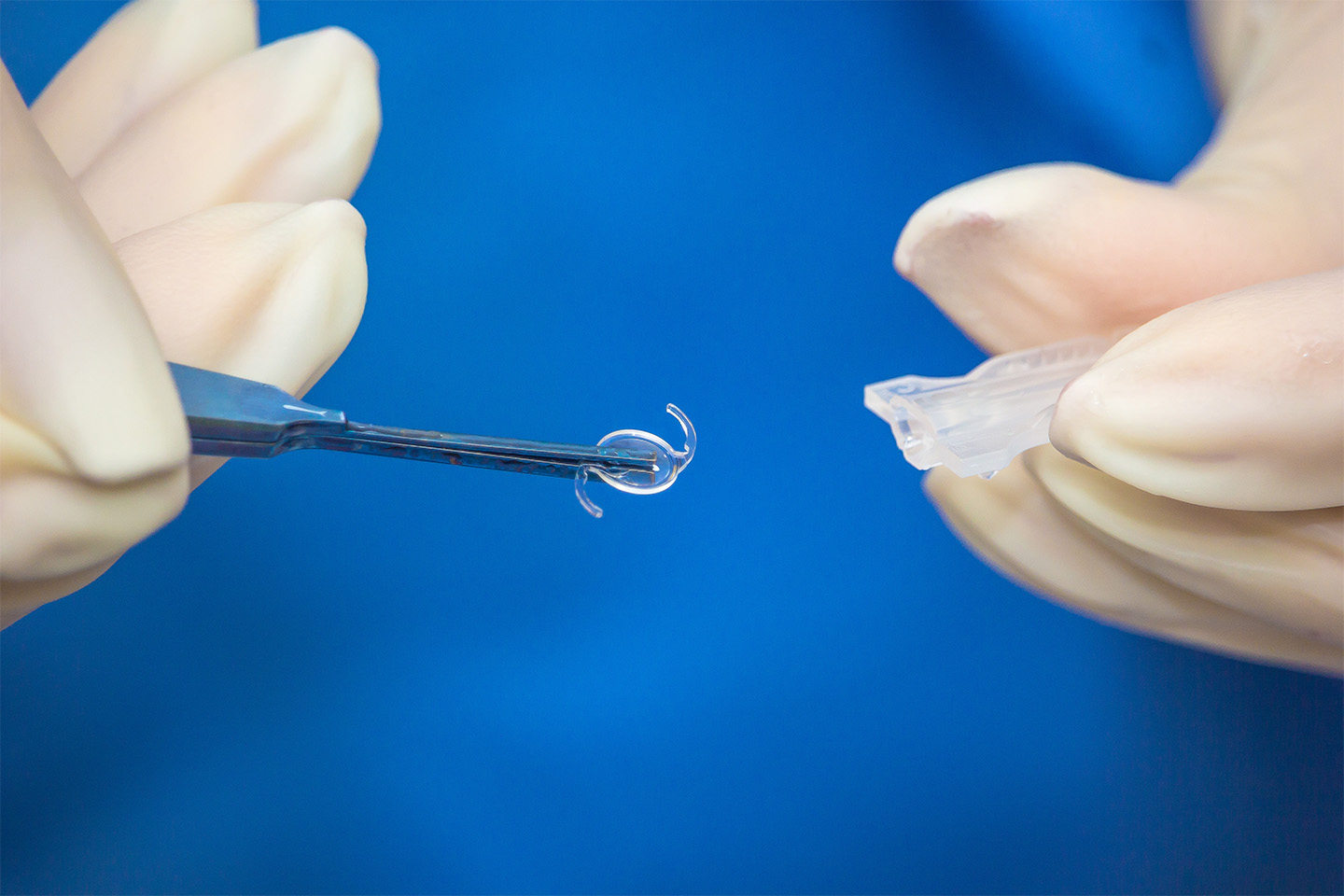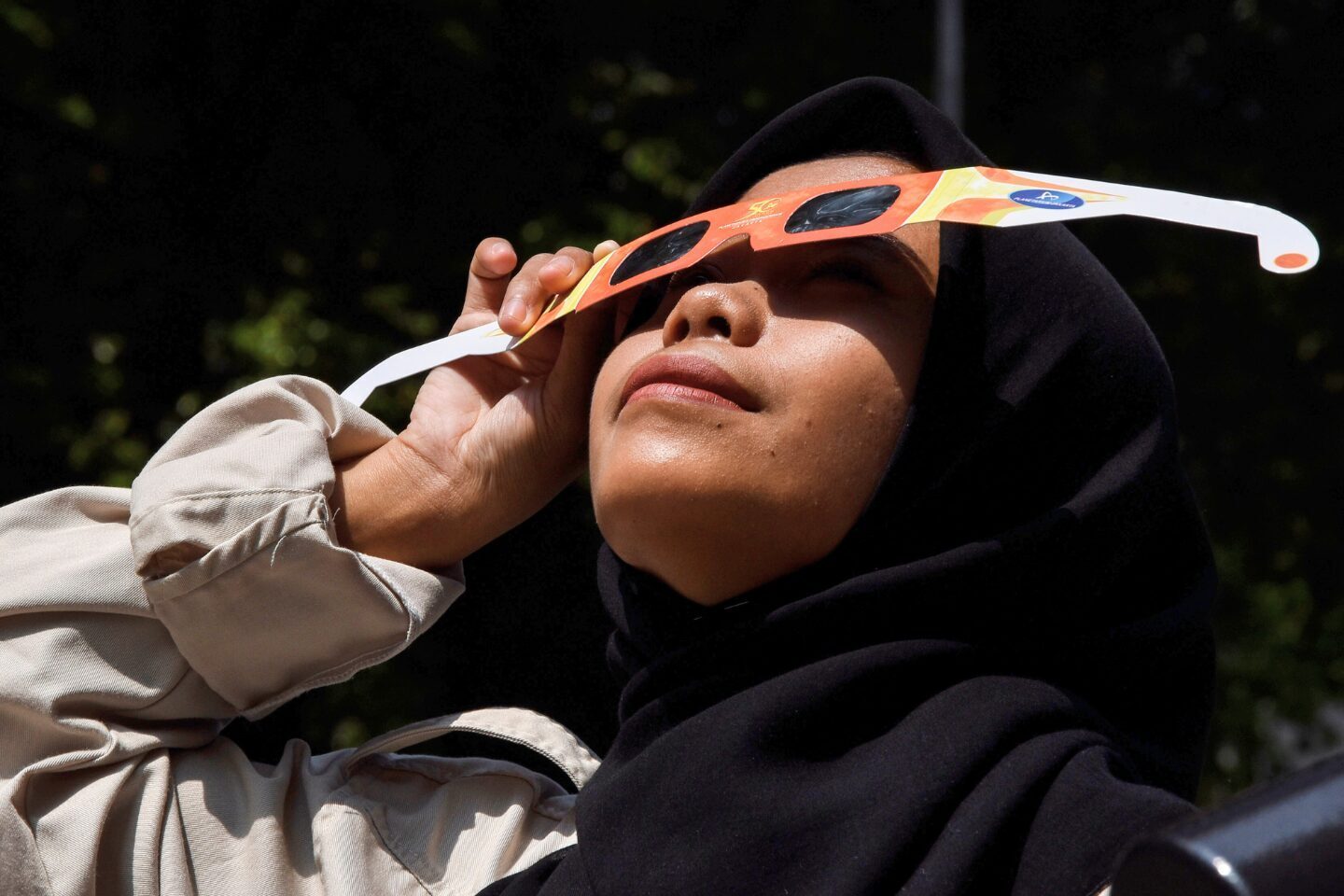Am I A Candidate for Refractive Surgery?

When you need glasses or contacts to perform daily activities, it can be frustrating not to be able to simply get up, go, and enjoy life easily. You may think about a refractive procedure as a potential option to fix nearsightedness (myopia), farsightedness (hyperopia) or blurry vision (astigmatism). Likewise, you may wonder if you are a good candidate for any of the cutting-edge refractive surgeries such as LASIK, PRK, CLE, or Visian ICL. At Kleiman Evangelista Eye Centers of Texas, our eye doctors offer these procedures to eligible patients. Read on to learn about the most important characteristics that mark candidacy for each type of refractive surgery.
Am I a Candidate for LASIK?

LASIK is one of the most popular types of refractive surgeries, recognized for its effectiveness, efficiency, and safety. In fact, it is well known for correcting myopia, hyperopia, and astigmatism. As such, you may wonder what the LASIK procedure entails and if you are a LASIK candidate.
What is LASIK?
At Kleiman Evangelista, we want our LASIK patients to be well-informed about the procedure and how it can benefit their vision. LASIK is a laser eye surgery where your surgeon carefully reshapes your cornea. By providing your eye with a natural and healthy curvature, light passes through your eye properly and results in clear images. Your LASIK surgeon uses a femtosecond laser to cut a small, precise flap which is then folded back. Once underneath the flap, they use an excimer laser to remove tissue from appropriate places on the corneal stroma.
General Guidelines
At your LASIK consultation, our qualified staff will verify your LASIK candidacy by looking for specific criteria. We will discuss everything with you, perform a physical eye evaluation, and use our advanced CONTOURA® Vision testing and Vario Diagnostic Device to scan and map your eye. Specifically, we look at the following features:
- Prescription Parameters
If you are interested in having LASIK, you most likely already wear prescription glasses or contact lenses. Depending on your prescription strength, you may be a LASIK candidate. There are some limitation, and if you have a stronger prescription, LASIK may not be the best fit.
- Eye Health
Healthy eyes are incredibly important in ensuring a successful, safe procedure. Good eye health covers a large portion of requirements:
- Your eyes must have reached ocular maturity (18 years or older).
- You must have had stable vision for at least two years.
- You must not have any eye diseases, injuries, infections, or inflammation disorders.
- You must not have dry eye.
- You must not have cataracts.
- Overall Health
You’ll benefit from greater healing potential and faster healing times if you are in overall good health. When you come in for a consultation and evaluation, our staff will ask you to share your health history and disclose if you are pregnant. In this way, we can make sure the LASIK treatment is the right choice for you. If you have medical conditions such as diabetes or autoimmune diseases such as rheumatoid arthritis, you may not be eligible for LASIK. Likewise, there may also be certain medications that will increase your risks during and after surgery.
- Corneal Thickness
Since LASIK surgery works by creating a corneal flap and working upon the stroma, your cornea needs to be of a sufficient thickness.
- Pupil Size
It is important that your pupils are not too large, as large pupils may increase your risk of negative side effects. Rather than improving your vision greatly, LASIK could make you experience halos or bursts of light in a low lighting environment.
Am I a Candidate for PRK?

PRK is like the LASIK procedure in that the surgeon uses a laser to reshape your cornea to correct myopia, hyperopia, and astigmatism. Yet, unlike LASIK, there are no cuts or flaps made into the cornea. PRK may be an ideal treatment option if you do not qualify for LASIK because of your corneal thickness, your prescription, or if you have dry eye syndrome. Read on to find out what happens during PRK and if you would be eligible.
What is PRK?
PRK is a refractive laser vision correction focusing on transforming the cornea into a natural, healthy shape. The surgeon uses a liquid solution to remove the outermost surface of the cornea (that grows back during the healing process). In this way, they can access the cornea stroma easily and begin removing tissue from appropriate places on the eye.
General Guidelines
When our compassionate eyecare team meets with you, they will use our CONTOURA® Vision testing and Vario Diagnostic Device to scan your eye and look for the following requirements:
- Prescription Parameters
If you wear glasses or contact lenses, you may already be aware of your prescription. If you suffer from up to -12 diopters of myopia, up to +6 diopters of hyperopia, or up to 4 diopters of astigmatism, you are eligible for PRK if you meet the other requirements.
- Eye Health
Good eye health ensures that the PRK surgery will go as planned. As such, it is important for us to verify:
- You are at least 18 years old, making sure your eyes have reached ocular maturity.
- You have had a stable prescription for at least two years.
- You do not have any eye diseases, infections, or disorders.
- You do not have any inflammation problems or disorders with your cornea.
- Overall Health
We recommend moving ahead with PRK surgery only if you are in good overall health. At your initial consultation, you may expect us to ask about your health, including if you are pregnant or planning on being pregnant soon, if you have any autoimmune conditions or severe health concerns, and if you take any medications.
- Corneal Flaps Are Inadvisable
One of the main refractive surgeries is LASIK, which requires the surgeon to create a corneal flap during surgery. If you work in a career or perform activities where a corneal flap is inadvisable, you may qualify for PRK instead. For instance, if you work in manufacturing or the military or perform contact sports, PRK may be ideal.
- Corneal Thinness
Unlike LASIK surgery, you do not need to have a thick cornea to qualify for PRK. In fact, since we use a solution to dissolve the outer layer of the cornea, you may have a relatively thin cornea.
Am I a Candidate for CLE?

CLE or Clear Lens Exchange is an excellent option for correcting a refractive error such as severe hyperopia or presbyopia. It may also be an ideal solution if you do not qualify for LASIK or PRK. Let’s discuss what CLE is and if it is the right fit for you.
What Is CLE?
During the procedure, our eye surgeons make a small incision into the sclera to access the natural lens of your eye. With a phacoemulsification tool, they break up and remove the lens. Then, they perform an intra-operative evaluation allowing them to measure visual acuity and determine the proper artificial lens, or IOL, to place in your eye. We offer advanced corrective lenses such as multifocal IOLS and toric IOLs. Overall, this is a very similar surgery to cataract surgery, apart from the fact that it does not involve removing a blurry or clouded lens.
General Guidelines
When you come in for a consultation at one of our eye centers, we determine whether you are eligible for CLE by assessing these factors:
- Severe Hyperopia or Presbyopia
While other types of refractive surgeries require your prescriptions to be within a certain range, CLE is suitable for you if you suffer from severe or extreme hyperopia or presbyopia. Depending on your condition, this may be higher than 3 diopters or 5 diopters.
- No Trace of Myopia
It is important that you do not suffer from high myopia, unrelated to any presbyopia. If you have myopia and undergo a CLE surgery, there is a high risk of retinal detachment.
- Eye Health
Like all surgeries, your eyes must be relatively healthy. It is important that we confirm:
- You are 40 years or older and suffer from presbyopia.
- You are 18 years or older and suffer from hyperopia.
- You do not have any eye diseases, infections, or disorders.
- You are not prone to developing cataracts.
- Overall Health
Since a CLE procedure is a minor surgical procedure, you need to be in good overall health to undergo treatment and recovery successfully. It is important to disclose any health concerns or prescription medications.
- No Retinal Detachment
If you have retinal detachment, CLE surgery will not improve vision to a great extent. Furthermore, you may experience greater risks with the surgery if you do have a retinal detachment.
Am I a Candidate for EVO Visian ICL?

If you wear high prescription glasses or contacts, you may be eligible for our EVO Visian ICL surgery. In this procedure, the eye surgeon can correct severe myopia and astigmatism. It is the perfect alternative to LASIK and PRK. Learn more about the procedure and candidacy requirements below.
What Is Visian ICL?
Visian ICL is a refractive surgery where the eye surgeon creates a micro-opening in the eye and implants a Visian Toric ICL lens behind the iris. The special lens unfolds naturally, and the surgeon makes sure it is positioned properly. After this process, you can immediately benefit vision improvement.
General Guidelines
At Kleiman Evangelista, we take candidacy seriously because it can set your surgery up for success. For this reason, along with an initial discussion and assessment, we use a state-of-the-art Pentacam and EPIC Refraction system to measure parts of your eye. We look at the following features:
- Prescription Parameters
Visian ICL may be perfect for you if you suffer from myopia up to -20 diopters with less than 2.5 diopters of astigmatism.
- Eye Health
Our friendly, caring staff will ask you about your eye health and evaluate your eye to determine if you have any secondary eye conditions or other vision problems. Generally, we would like to confirm that:
- Your myopia prescription does not change more than .5 diopters annually.
- You do not suffer from serious eye disorders or diseases.
- Overall Health
Your overall health should be considered prior to undergoing any surgery. We need to verify that:
- You are between the ages of 21 to 45.
- You are not pregnant.
- You do not have a diabetes.
- You are not taking medication that may interfere with the surgery results.
- Anterior Chamber Depth
Anterior chamber depth should be considered when addressing your candidacy for Visian ICL. If you have a depth of more than 2.80mm, you may have a higher risk of your implantable lens failing.
- Endothelial Cell Density
If you have an abnormally low endothelial cell density in your eye, you may not qualify for Visian ICL surgery or implant. The number of endothelial cells mainly determines the hydration of your eye, namely your cornea. When you undergo surgery with a below-average count, you may suffer a further reduced count and thus experience negative side effects.
After learning about the basic requirements for each of our refractive vision correction surgeries, you may be interested in following up with a free consultation at Kleiman Evangelista Eye Centers of Texas. Contact us today to make an appointment with our expert eye care team and learn more about your options!









